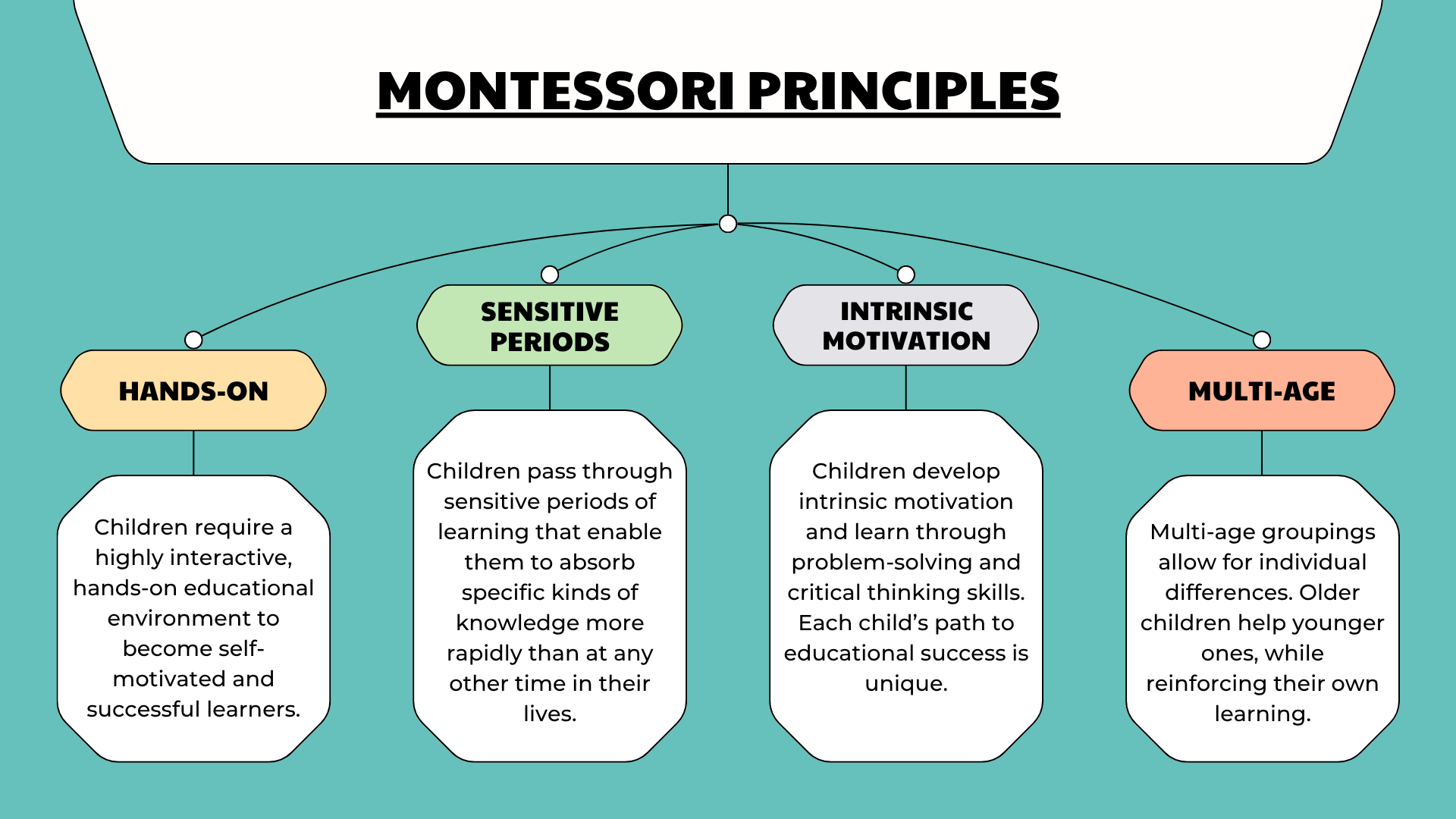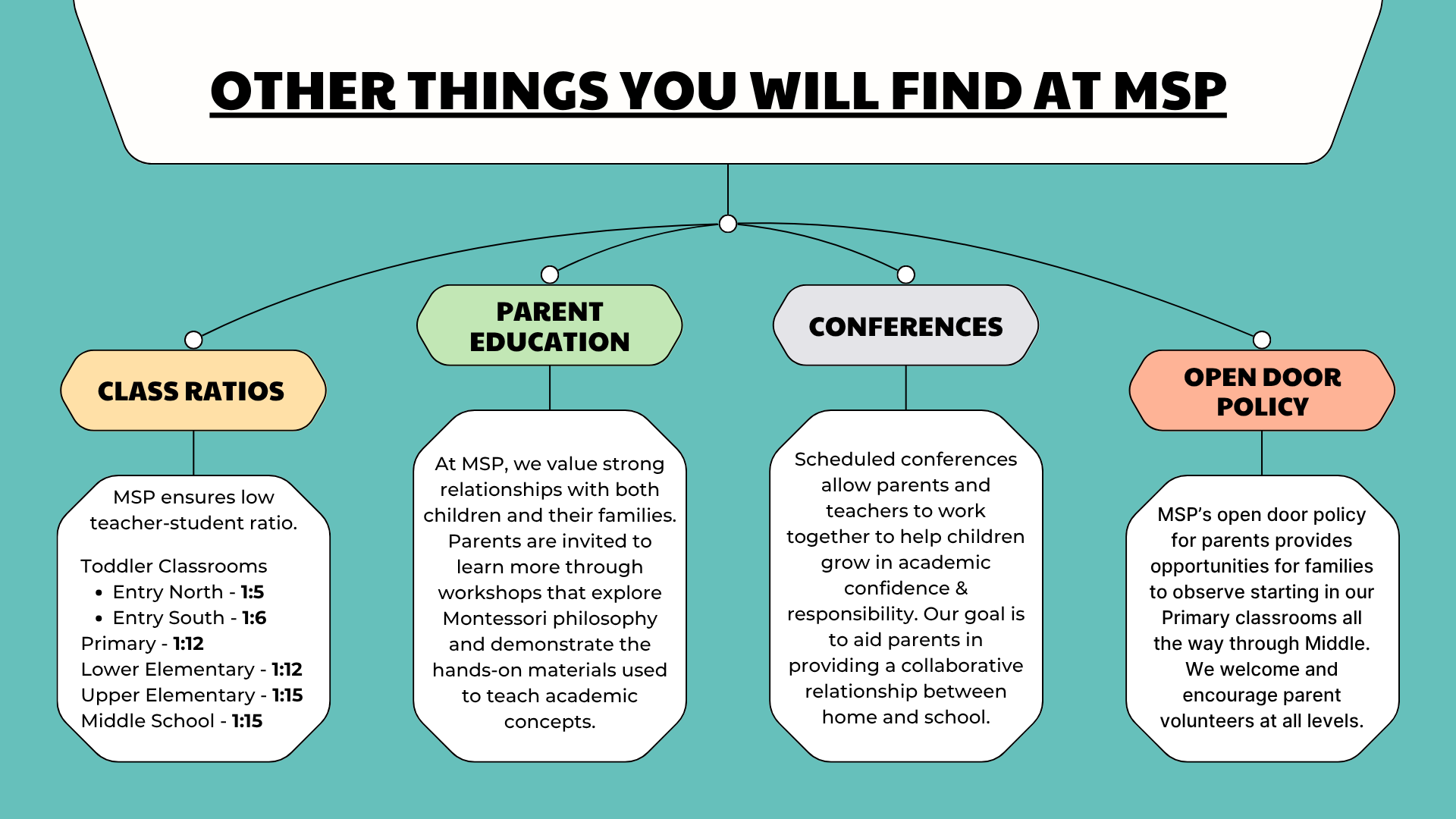Through her study of children, Dr. Maria Montessori made many discoveries that led her to develop and refine the Montessori approach to learning. We base our program upon these principles.

Montessori Curriculum Areas
PRACTICAL LIFE
These exercises are a hallmark of Montessori education. They revolve around care of self, grace and courtesy, control of movement, and care of the environment. Practical Life in Montessori is purposeful activity, develops motor control and coordination, and develops independence, concentration, and a sense of responsibility.

CULTURAL
This area includes lessons in geography, history, biology (botany and zoology), science, art, and music. Cultural education helps children develop a deeper understanding and appreciation of the world and promotes empathy and compassion for others. As they explore, children develop skills such as observation, prediction, sequencing, questioning, organizing, comparing, and contrasting.

SENSORIAL
These activities help children develop and refine their senses (sight, hearing, touch, taste, and smell). Sensorial exercises teach perspective, discrimination, and order. They help students learn how to organize their environment, classify objects, and use logic to make sense of the world around them.

MATH
The Montessori mathematics curriculum is an amazing and highly successful approach. This curriculum consists of remarkable hands-on materials, detailed lessons, one-on-one instruction, life application, and a deep level of understanding process, not just memorizing.

LANGUAGE
The Montessori approach to language and literacy emphasizes oral language development from an early age, building a strong foundation for learning to read and write. Montessori is a phonics-based approach that aligns with the science of reading. MSP students are taught cursive handwriting.


12th Avenue Campus
Admissions Office
Entry Level, Preschool/Kindergarten
Montessori Drive East Campus
Business Office
Preschool/Kindergarten/Lower Elementary
Montessori Drive West Campus
Upper Elementary & Middle School
